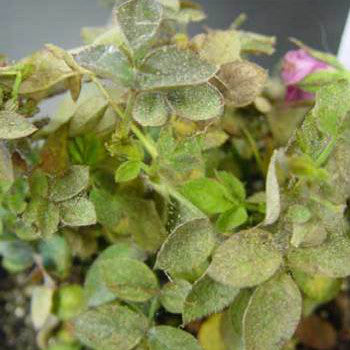No Products in the Cart
July Rose Care
Beat the Heat!
July is usually the month where most rose gardens go downhill. This happens because gardeners are thinking about vacations, the awful heat, and are not willing to step outside to do a little tending to their garden. If you can make an effort to keep your roses looking good through this part of the summer, you will be rewarded when the weather begins to break toward the Fall. Other than lack of attention, there are a few other topics to pay attention to in your rose garden during the heat of the summer.
Spider Mites
A big issue during July is the possibility of spider mite damage to rose bushes. The two spotted spider mite is the main culprit for damage to roses here in NC. Not much bigger than a grain of sand, these critters suck the juices out of the cells on the undersides of the rose leaf. They are not affected by most insecticides, in fact their populations usually grow with the application of most insecticides. Their natural enemy is water, which is one reason they love colonizing the undersides of the leaf. They will form thick webs under rose leaves and to the naked eye, the bottom of the leaf will look like sandpaper, or like it has been sprinkled with salt and pepper. The top of the leaf usually shows yellowing between the veins. As stated above, water is one of the most effective miticides. Blasting the undercarriage of your plants with a forceful fow of water will knock spider mites off the plants, disrupt their colonies, remove their eggs and interrupt their life cycle. This must be done 2-3 times per week and when infested, bushes must be hosed twice per day. If there is not time in your schedule to hose the undersides of your plants, miticides are the next best thing. Natural miticides like Neem Oil, Insecticidal soap, and various plant oils such as clove oil work very well, but they must be applied early in the morning and the garden must be well irrigated. They tend to be stressful to the leaves and may burn if sprayed on a dry garden at the temperature above 70 degrees Fahrenheit. Synthetic miticides, like Avid or abamectin, are effective on small populations of mites, but need to be applied every 3-5 days and are only mildly effective on severe infestations. Some synthetic miticides also kill predatory insects that might be helping to lower the population of pest mites in your garden.
